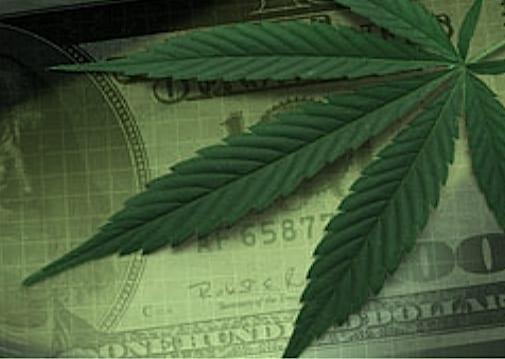- browse by category
- Audit Assistance
- Business and Taxes
- Celebrities in Tax Debt
- Cryptocurrency Taxes
- Economic News
- Foreign Banking
- Innocent Spouse
- IRS debt settlement
- IRS Headlines
- IRS Wage Garnishment
- Marriage & Divorce
- Payroll Tax
- Retirement
- Revenue Officers
- State Tax Headlines
- Stop IRS Debt
- Success Stories
- Tax and Politics
- Tax Attorney
- Tax Codes
- Tax Debt Help
- Tax Evasion
- Tax Levy
- Tax Lien
- Tax Payment Plans
- Tax Return Filing
- Tax Tips

Now that two states – Colorado and Washington – have legalized marijuana, it seems that the momentum to legalize it is starting to pick up steam after California voters rejected marijuana legalization over two years ago. The next topic: Taxing pot.
Taxing Pot: Could It Work?
And now public officials in these states are starting to think dollar signs with the legalization of a drug that’s a significant part of the black market. Taxation is increasingly becoming one of the main reasons to support marijuana legalization.
While States Legalize, Revenue Estimates Remain Murky
There’s a whole slew of figures as to how much a marijuana tax could produce for government coffers. One Colorado Congressman cites a figure as high as $100 for his state. Another figure claims that a sales tax coupled with an excise tax could bring in as much as $1.2 billion for California.
A national estimate claims that as much as $6.4 billion could be raised for state and federal governments.
But with all estimates, they’re just estimates. And because marijuana is currently illegal in most states, figures can’t be conjured up with a healthy dose of validity. While marijuana’s price would probably fall, no one knows for sure how much Mary Jane is bought and sold in the United States. Estimates for the underground marijuana market range from $10 billion to $120 billion annually.
Considerations about Taxing Pot
Even if Uncle Sam doesn’t crash legalization proponents’ party, state officials who want to tax marijuana will have to deal with the sensitive issue of how high a tax should be. Tax it too much, and users could go back to their black market dealers to save money. Thus, avoiding the tax man altogether.
The Federal Government still prosecutes marijuana dealers just as hard as they do with tax evaders. Avoiding back taxes may save a little bit of money now, but it can lead to wage garnishments, bank levies, or possible prison time later. Which is something both parties can relate to.
Leave Comments

Top Tax
secrets revealed
Sign up for our newsletter and be the first to find out when exciting IRS news happens. Yes, exciting. We're really into taxes.


